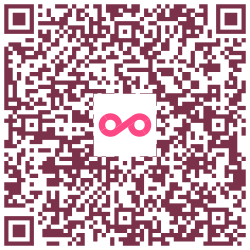For me, working with data is the perfect combination of technical skills, creativity, and impact. Moreover, data connects different disciplines and allows me to learn about different topics. I’m an engineer and I love the technical side of my job. I like to understand how things work and be able to create them myself. I enjoy solving problems and making solutions more efficient. It’s especially important for me to understand the impact of my work, have in-depth knowledge of the subject, recognise the challenges and, understand when some solutions work better than others. And to see how all of this fits in an interdisciplinary context, because important challenges cross disciplinary boundaries.
I studied Telecommunications Engineering in Madrid and in my last year I went to Karlskrona, Sweden, on Erasmus. I fell in love with the country and the international experience, so I decided to do an international master’s Erasmus Mundus in Industrial Management in Madrid, Milan, and Stockholm. To complete my master’s degree, I moved to Luxembourg in 2011 to do a company-based master’s thesis. For the next ten years, I worked in private companies on projects related to data integration, reporting, data analysis and data visualisation, in different business areas and industries.
In 2017, I started volunteering at Viz for Social Good, an initiative to help non-profit organisations visualise their data; and in 2020, I became regional leader. This gave me the opportunity to visualise data from different domains beyond corporate data. I had always been particularly interested in data visualisation as a tool for discovery and communication, so I began to learn more about mechanics of the sight, visual perception and graphical communication, interpretation and understanding, types of visual representations and their history, data storytelling, and much more. I also started to follow closely the work being done in data visualisation in other fields such as data journalism or scientific communication. In 2021, I left my position in the private sector and started a PhD in data visualisation at the Luxembourg Centre for Contemporary and Digital History (C2DH), within the LuxTIME project.
LuxTIME is an Audacity project funded by the Institute for Advanced Studies of the University of Luxembourg (IAS). It involves three research centers: C2DH, LCSB (Luxembourg Center for Systems Biomedicine) and LIST (Luxembourg Institute of Science and Technology). We use the industrialisation of Belval, as a testing ground for methodological and epistemological reflections on how to study the impact of the environmental exposures on the local population, combining information from historical archives and sampling campaigns. LuxTIME is a spin-off of the European Time Machine, which aims to map European economic, social, cultural, and geographical evolution across times using innovative technologies and infrastructure.
Working on LuxTIME allows me to study different approaches to data visualisation, including the more humanistic approach. We can use data visualisation to simplify a complex topic, to quickly make data-driven decisions and to convey a clear message to a certain audience. For that purpose, we use data visualisation to reduce, standardise and simplify. We eliminate the non-essential elements to avoid distractions. However, at other times, what we really need is to foster emotional connection, to promote human values, to engage people in the interpretation of the data, to show complexity and introduce multiple narratives. When this is the case, we emphasise the granularity, the specificity of every data point. We integrate non-essential visuals that help achieve this goal. We can also go a step further and use data visualisation as a tool for interpretation, including higher levels of complexity such as non-discrete categories, unequal scale divisions, or metrics as a factor of a point of view. Each of these approaches serves different needs and objectives, but if we only focus on the first one, we overlook important aspects of our analysis.
It’s exciting to do research on a topic that I’m passionate about in a truly interdisciplinary context. It’s not always easy, because I’m constantly working outside of my comfort zone, with data that I’m not used to, such as data from historical archives, and learning about paradigms and methods of research from the natural sciences and the humanities. However, doing research at this point in my professional career allows me to leverage other skills and technical knowledge that I didn’t have ten years ago.
Als partizipative Debattenzeitschrift und Diskussionsplattform, treten wir für den freien Zugang zu unseren Veröffentlichungen ein, sind jedoch als Verein ohne Gewinnzweck (ASBL) auf Unterstützung angewiesen.
Sie können uns auf direktem Wege eine kleine Spende über folgenden Code zukommen lassen, für größere Unterstützung, schauen Sie doch gerne in der passenden Rubrik vorbei. Wir freuen uns über Ihre Spende!
